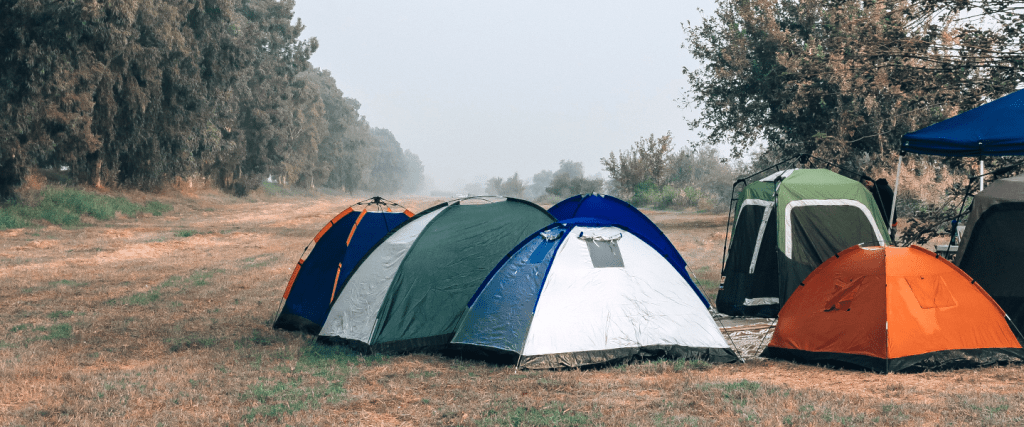Welcome to the wonderful world of summer camping! There’s nothing quite like the fresh air, the gorgeous scenery, and the peaceful sounds of nature. Whether you’re a seasoned camper or a newbie to the outdoors, it’s important to prepare properly for your trip. With a little bit of planning and a lot of enthusiasm, you can have the best camping experience of your life.
Before you set off on your adventure, take some time to think about what you want to get out of your trip. Are you looking for a peaceful retreat, an adrenaline-filled adventure, or a fun-filled family vacation? Once you’ve decided on your goals, you can start planning your trip.
In this blog post, we’ll cover 28 expert tips for making the most of your summer camping trip. From packing essentials to cooking tips to safety and emergency preparedness, we’ll cover everything you need to know to have an amazing camping experience.
So get ready to pitch your tent, light a campfire, and explore the great outdoors. Let’s get started!
Location, location, location
One of the most important aspects of planning a summer camping trip is choosing the right location. With so many amazing campgrounds and national parks to choose from, it can be overwhelming to decide where to go. However, taking the time to research and choose the right campground for your trip can make all the difference in your overall experience.
First, consider the type of camping experience you want to have. Do you want to be in the middle of the wilderness, far away from civilization? Or do you prefer a campground with amenities like running water and bathrooms? Knowing what you want will help you narrow down your options.
Next, research the area’s climate and weather conditions. Summer weather can vary greatly depending on your location, so be sure to pack accordingly. If you’re headed to a hot and dry region, bring plenty of water and sunscreen. If you’re headed to a cooler region, bring warm layers and a raincoat.
Don’t forget to consider the surrounding scenery and attractions. Are you looking for a breath-taking mountain view, a serene lake, or a stunning beach? Do you want to go hiking, fishing, or kayaking? Make sure to choose a campground that offers the activities and scenery you’re looking for.
Finally, consider the availability and popularity of your chosen campground. Some campgrounds require reservations well in advance, while others are first-come, first-served. Additionally, popular campgrounds can fill up quickly, especially during peak summer months. Be sure to plan ahead and reserve your spot early to avoid disappointment.
In summary, choosing the right campground for your summer camping trip is crucial to having a successful and enjoyable experience. Research the climate, scenery, activities, and availability of each option to make an informed decision. With the right location, you’re on your way to an unforgettable summer camping adventure.
Packing Essentials
Packing for a summer camping trip can be a daunting task, especially if you’re not sure what to bring. But don’t worry, we’ve got you covered! In this section, we’ll go over the essential items you should pack for a successful camping trip.
First and foremost, you’ll need a tent, sleeping bag, and sleeping pad. These items will keep you sheltered and comfortable during your trip. Make sure to choose a tent that fits the number of people in your group and is appropriate for the weather conditions you’ll encounter.
Next, don’t forget to bring cooking supplies, including a camp stove, fuel, pots and pans, utensils, and a cooler for perishable items. It’s also a good idea to bring non-perishable food items like trail mix, canned goods, and snacks.
Other important items to pack include appropriate clothing for varying weather conditions, a first aid kit, a headlamp or flashlight, insect repellent, and sunscreen. If you plan to do any outdoor activities like hiking or fishing, make sure to bring the necessary gear for those activities as well.
When packing, be sure to do so efficiently and strategically. Use a checklist to make sure you don’t forget anything important, and pack items in a way that makes sense for easy access. It’s also important to pack in a way that distributes weight evenly and doesn’t overload your backpack or vehicle.
Finally, make sure to pack for varying weather conditions. Even if you’re headed to a warmer climate, it’s still a good idea to bring warm layers for chilly nights or unexpected weather changes. And if you’re headed to a cooler region, bring plenty of warm layers and rain gear.
In conclusion, packing for a summer camping trip doesn’t have to be overwhelming. Bring the essential items, pack strategically and efficiently, and don’t forget to pack for varying weather conditions.
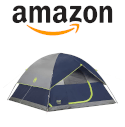
COLEMAN SUNDOME TENT
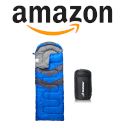
MALLOME SLEEPING BAG
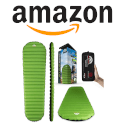
GEAR DOCTORS AIR MATTRESS
Tent Tips
Your tent is your home away from home when camping, so it’s important to choose the right one for your needs and take proper care of it. In this section, we’ll go over some essential tips for selecting, setting up, and maintaining your tent.
When choosing a tent, consider the size, weight, and design. You’ll want a tent that fits the number of people in your group comfortably, is easy to set up and take down, and is appropriate for the weather conditions you’ll encounter. Dome tents are great for families, while backpacking tents are perfect for solo or duo trips.
Once you have your tent, it’s time to set it up. Make sure to choose a flat, level surface and clear any debris before laying down your tent. Follow the instructions carefully, and don’t force anything that doesn’t seem to fit. Staking your tent down is essential, as it will keep it in place during windy weather.
When it’s time to take down your tent, do so carefully and follow the instructions in reverse. Make sure to shake off any debris or dirt before packing it up. When packing, store the tent in a dry, cool place to prevent mold or mildew.
Maintaining and repairing your tent is also essential to prolonging its lifespan. Always store your tent dry and clean, and avoid packing it up when it’s wet. You can also use a tent footprint or ground cloth to protect the bottom of your tent from abrasions and damage.
If your tent does become damaged, make sure to repair it as soon as possible. Most tents come with a repair kit, and you can also purchase tent-specific repair materials online. It’s also a good idea to practice repairing your tent at home before you head out on your trip, so you’re prepared for any unexpected situations.
So, choosing the right tent, setting it up and taking it down properly, and maintaining and repairing it will help you have a successful camping trip. With these tips, you’ll be able to enjoy a comfortable and hassle-free camping experience in the great outdoors
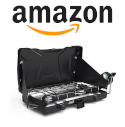
COLEMAN CAMPING GAS STOVE
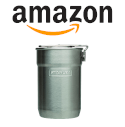
STANLEY ADVENTURE CAMP COOK SET
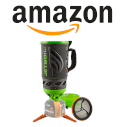
JETBOIL FLASH JAVA COOKING KIT
Sleeping Gear
Getting a good night’s sleep is essential when camping, and having the right sleeping gear can make all the difference. In this section, we’ll cover some important tips for choosing, using, and maintaining your sleeping bag and sleeping pad.
When choosing a sleeping bag, consider the temperature rating, size, and insulation type. Sleeping bags are rated for specific temperature ranges, so make sure to choose one that’s appropriate for the climate and weather conditions you’ll be camping in. Down insulation is great for colder weather, while synthetic insulation is more affordable and easier to care for.
Sleeping pads are also important for staying comfortable and warm at night. They provide insulation between your body and the ground and can also help cushion pressure points. When choosing a sleeping pad, consider the size, weight, and insulation type. Self-inflating pads are convenient and easy to use, while closed-cell foam pads are lightweight and durable.
To stay warm and comfortable at night, make sure to layer appropriately and keep your head covered. Wear dry, clean clothes, and use a beanie or hood to keep your head and neck warm. You can also use a liner inside your sleeping bag to add extra warmth and keep your bag clean.
When packing up your sleeping gear, make sure to store it in a dry, cool place to prevent mildew and damage. You can also use a compression sack to save space in your pack. When setting up your sleeping gear, make sure to choose a flat, level surface and clear any debris before laying down your pad and bag.
Choosing the right sleeping bag and sleeping pad, staying warm and comfortable at night, and keeping your sleeping gear clean and dry are essential for a successful camping trip.
Cooking and Meal Planning
One of the joys of camping is cooking and enjoying meals in the great outdoors. With a bit of preparation and the right gear, you can create delicious and satisfying meals while camping. In this section, we’ll cover some tips for cooking and meal planning while camping.
First, consider the type of cooking you’ll be doing. Will you be using a campfire, a portable stove, or both? Make sure to check if your campsite allows campfires and if there are any fire restrictions in place. If you’re using a portable stove, make sure to bring extra fuel and a lighter or matches.
When packing your cookware and utensils, think about what you’ll need to cook and serve your meals. Essential items include a pot and pan with lids, a spatula, tongs, a knife and cutting board, and plates, bowls, and utensils. Consider bringing lightweight and collapsible items to save space in your pack.
For meal planning, think about easy and convenient meals that can be prepared with minimal ingredients and equipment. Some ideas include instant oatmeal or cereal for breakfast, sandwiches or wraps for lunch, and one-pot meals like chili or pasta for dinner. Preparing meals in advance and freezing them can also be a time-saving option.
When cooking at your campsite, be mindful of food safety and hygiene. Wash your hands frequently and make sure to store food properly to prevent contamination. Consider using a portable camp sink or water jug for washing dishes and utensils.
With the right equipment and some meal planning, you can enjoy delicious and satisfying meals while camping. Be creative and think outside the box when it comes to meal ideas, and always practice good food safety and hygiene practices.
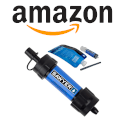
SAWYER MINI WATER FILTRATION SYSTEM
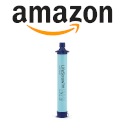
LIFESTRAW PERSONAL WATER FILTER

KATADYN BEFREE WATER FILTRATION SYSTEM
Outdoor Fun and Activities
Camping is a great way to enjoy the great outdoors and spend quality time with loved ones. In this section, we’ll explore some fun outdoor activities and ideas for making lasting memories while camping.
First and foremost, safety should always be a top priority when exploring nature. Make sure to research the area beforehand and check for any potential hazards, such as wildlife or unstable terrain. Bring a map and compass or GPS device, and make sure someone knows your intended route and expected return time. Always pack appropriate clothing and gear for the conditions, including sun protection and insect repellent.
When it comes to outdoor activities, the options are endless. Hiking, fishing, swimming, and biking are just a few examples of fun ways to enjoy the outdoors. You can also bring along games, such as cards or board games, or create your own fun outdoor games like scavenger hunts or capture the flag.
Don’t forget to take time to appreciate the natural beauty around you. Go for a scenic walk, birdwatch, or stargaze at night. You can also take advantage of the opportunity to disconnect from technology and spend quality time with friends and family. Share stories around the campfire or simply relax and enjoy each other’s company.
Camping provides endless opportunities for outdoor fun and making memories with loved ones. Remember to prioritize safety when exploring nature, and don’t be afraid to try new activities and experiences.
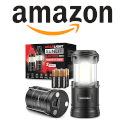
GEARLIGHT LED LANTERN MAGNETIC BASE
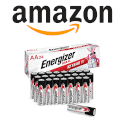
ENERGIZER MAX AA BATTERIES
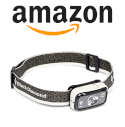
BLACK DIAMOND SPOT 350 HEADLAMP
Camping Etiquette
Camping etiquette is all about being respectful towards other campers and the natural environment. It’s important to remember that you’re sharing the campground with others and that everyone is there to enjoy their time in nature.
One of the most important aspects of camping etiquette is properly disposing of waste and garbage. Make sure to bring enough garbage bags and pack out everything you bring in. Never leave food scraps or garbage out in the open, as it can attract wildlife and create a mess. If your campground has designated waste disposal areas, make sure to use them properly and dispose of your waste in the appropriate bins.
Another important aspect of camping etiquette is being respectful toward other campers. Keep noise levels down, especially during quiet hours, and be considerate of your neighbors. Don’t invade other people’s campsites or walk through them without permission. If you’re camping with pets, make sure to keep them on a leash and clean up after them.
Lastly, it’s important to follow the campground’s rules and regulations. These rules are put in place to ensure everyone’s safety and enjoyment, so make sure to read them carefully and follow them accordingly. This can include rules about campfires, parking, and activities that are allowed within the campground.
By following these simple camping etiquette tips, you can help create a positive camping experience for everyone. Being respectful towards others and the natural environment will ensure that everyone has a safe and enjoyable time in the great outdoors.
Safety and Emergency Preparedness
When it comes to camping, safety should always be a top priority. While camping can be a fun and exciting adventure, it is important to be prepared for any potential risks or emergencies that may arise during your trip. Here are some essential safety tips and emergency preparedness tips for your next camping trip.
Pack essential safety Gear – It is important to pack essential safety gear to ensure you are prepared for any unexpected situations. Some of the essential safety gear that you should pack includes a first aid kit, a flashlight or headlamp, extra batteries, a map, and a compass. Also, make sure to bring a whistle to signal for help in case of an emergency.
Prepare for Emergency Situations – Before embarking on your camping trip, it is important to research the area and its potential risks. Familiarize yourself with the local weather and climate conditions, wildlife, and any potential hazards such as steep terrain or bodies of water. Make sure to bring a fully charged mobile phone and a backup battery or solar charger. Also, let a family member or friend know about your camping plans and expected return date in case of an emergency.
Basic First Aid Tips and Tricks – Accidents can happen, so it is important to have basic first aid knowledge and supplies. Make sure to pack a first aid kit and familiarize yourself with how to use it. Additionally, learn how to treat common camping injuries such as burns, blisters, insect bites, and sprains. It is also important to know how to handle more serious situations, such as snake bites or allergic reactions.
Safety and emergency preparedness are essential components of any camping trip. By packing essential safety gear, preparing for emergency situations, and having basic knowledge of first aid, you can help ensure a safe and enjoyable camping experience for you and your fellow campers.
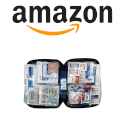
FIRST AID 298 PIECE ALL-PURPOSE KIT
Conclusion
You’ve made it to the end of our guide to summer camping, filled with 28 expert tips to help you plan and enjoy the perfect outdoor adventure. By now, you should feel confident in choosing the right location, packing efficiently, setting up your tent, staying comfortable, cooking meals, having fun, being respectful, and, most importantly, staying safe.
Remember, summer camping is all about enjoying nature and making unforgettable memories with your loved ones. So go ahead, get out there, and immerse yourself in the beauty of the great outdoors.
We hope our guide has inspired you to plan your next camping trip and that you have found the information and advice provided helpful. Don’t forget to share your own camping tips and stories with us in the comments below.
Happy camping!

